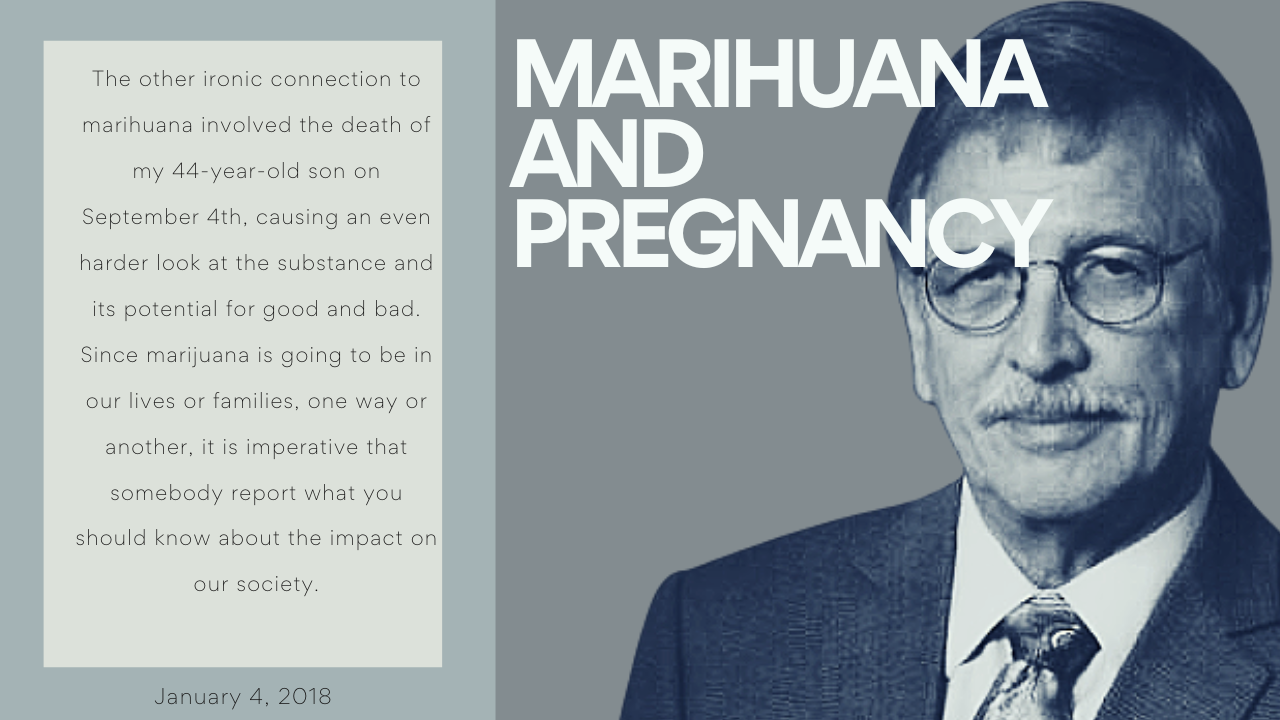Posted on November 17, 2022 View all news
Joe Tilton
January 4, 2018
The very idea that a series of articles about marihuana would turn into an assignment feels foreign. However, marihuana and the sale of the medical use of it has been in every edition of the Lakeview Area News every week for months, except one. Decisions in Michigan about marijuana are critical for several reasons.
The other ironic connection to marihuana involved the death of my 44-year-old son on September 4th, causing an even harder look at the substance and its potential for good and bad. Since marijuana is going to be in our lives or families, one way or another, it is imperative that somebody report what you should know about the impact on our society.
Most of us already know about fetal-alcohol syndrome and what it does, and last week the article was about what happens when mixing alcohol and marihuana. The warning was sounded that if you are under 21, don’t use marihuana, period. Using both substances in any form can be catastrophic and long-range, for the length of your life. What is written about the easily-obtained substances is not from a pro or con position on marihuana, but reality to explain the risks.
For people over 21 who suffer tremendous pain, and cancer patients, who could lay blame for finding solutions on their own when there appear to be few through traditional science. And a huge however is sounded for problems caused to a growing baby when its mother uses marijuana.
Last week’s article warned about the loss of an average eight (8) IQ points, permanently, if and when you use pot during ages up to 21. Does the same apply to a child before it’s born when subjected to marihuana? Yes.
So much is said about marihuana having no side effects, not being habit forming and causing no problems, that qualifications are rarely mentioned. And for the cancer patient and one being in severe pain, there should be an option for purchase—legally. But, for psychological pain, the number-one personal reason for smoking pot, no. And, not even second-hand pot smoke should be anywhere near pregnancy. If loss of eight-IQ points happens in a person already born from its use, imagine what happens to an unborn and developing brain.
The site www.whattoexpect.com, describes long-term effects this way; “Daily or weekly marihuana use may make pregnancy more high risk. A 2011 Australian study of almost 25,000 women concluded that babies born to mothers who used marihuana were twice as likely to end up in the neonatal intensive care unit compared to other babies. In addition, a review of 24-studies looking at marihuana use during pregnancy found that pot use during pregnancy makes babies 77-percent more likely to be underweight at birth. And analysis of 12,069 women found that women who smoked pot and cigarettes during pregnancy were more likely to have babies with smaller heads and low birth weight than women who just smoked cigarettes. The risk was high for women who smoked cigarettes too. They also have a higher chance of preterm labor.
Other studies found that after 3-years of age, children born to marihuana-smoking mothers scored less well on cognitive and behavioral tests, scored lower on memory tests, though they could not test intelligence scores because they could not establish a mental baseline for an unborn child. Hyperactivity was higher at age 10, plus inattention and impulsivity. Poorer reading skills and comprehension skills from age 6 and 14 were noticed.
Using marihuana during the 18 to 22-weeks of pregnancy can affect function of male fetus’ brains that control emotion. A 2017 report found that pot use during pregnancy may also have a negative impact on the structure of a baby’s eyes and vision. And that’s not all. What will be the cost to our educational system when these children show up at school?
Should all this mean that legalizing marihuana for medical reasons, or even recreational (whatever that means) use should be scrapped? There are other substances approved by the FDA that may be as dangerous. They come with stern warnings. The majority of society seems to want pot legalized, so like alcohol, marihuana is most likely going to be approved in Michigan. We already have a dangerous substance in our stores; 10,265 people died from drunk-driving crashes in 2015. We don’t seem to save ourselves from each other.
If all pregnancies were treated responsibly, and every fetus were given the best opportunity to be normal and healthy, or if not even one child used pot before age 21, who would care if it were legal in any form?
So far, warning labels have not been mentioned in any meeting of even one township, city or village considering sale of marihuana in any form. Perhaps it’s time for discussion of the effects of marihuana, and whose responsibility it is to inform the users.

